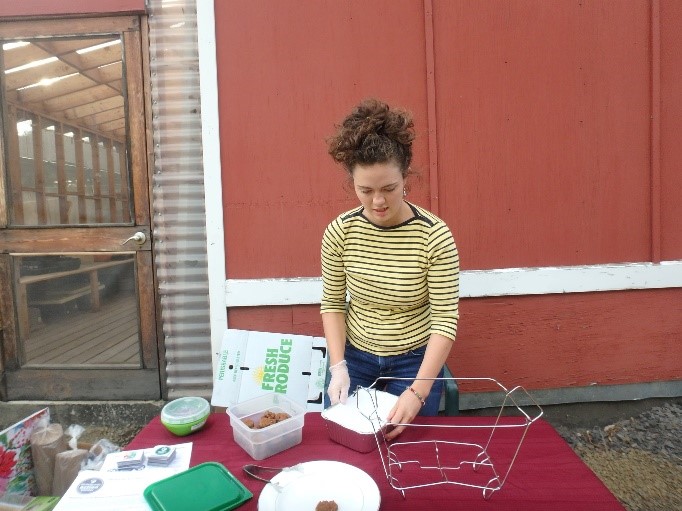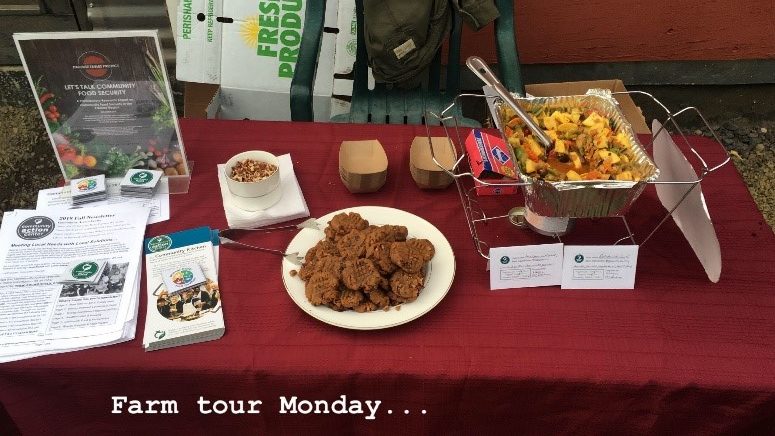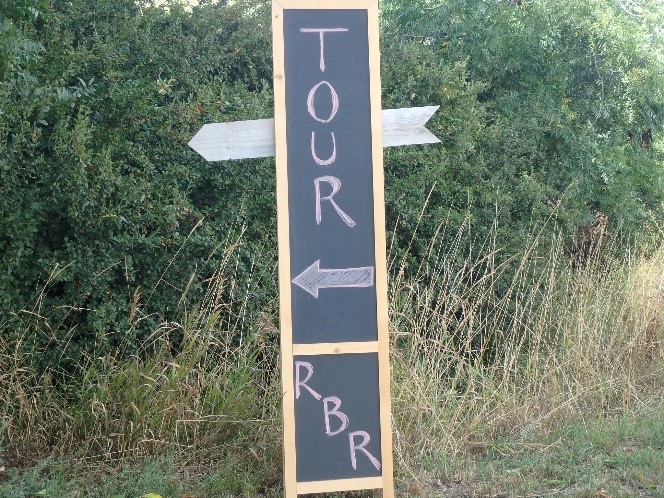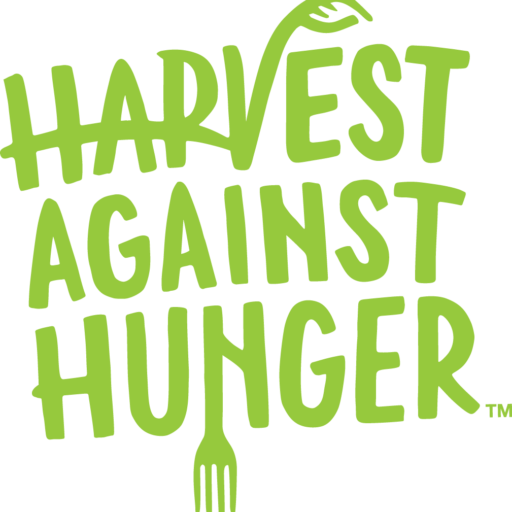
Local Farm to Food Pantry Partnership Growers Hold Farm Tour Celebrating Eat Local Month
03 Oct 2019, by Admin in Harvest Blog, Harvest VISTA, Washington state, Community Action CenterCapacity Awareness Harvest VISTA Robyn Glessner serves at the Community Action Center (CAC) in Pullman, which has been an endless proponent and advocate for ending hunger through sustainable food production and community collaboration throughout the Palouse for 30 years. One of their mottos is, “solving local needs with local solutions”, which perfectly frames my desire to work in an area that provides relief with sustainable solutions at its center. The office also provides energy assistance, housing, and weatherization services, as well as a food pantry, community garden, and computers for WorkSource applicants. In tandem with the desire to connect local food-insecure communities with the food producers in the region, the CAC and the first-year VISTA created the Palouse Tables Project. Within the work of this project, the regional community had expressed a desire for educational opportunities open to the public focused on self-sufficiency, in the form of preparing and preserving their own foods and gardening. Along these lines, the Palouse Tables Project will continue by providing opportunities for education courses and materials by adapting curriculum and coursework and then training local volunteers to teach these skills to the public.
At the peak of harvest season, the city of Moscow Chamber of Commerce holds an Eat Local month every year during September. This occasion is meant to celebrate local producers and small businesses by bringing light to the work they do. The Chamber offers to organize events and forums to showcase these local products and the importance of their impact on the community and the local economy. These events acknowledge local food producers, restaurants and artisans. The Chamber, along with the help of local organizations, creates a full schedule of events and opportunities throughout the month for community members to participate with and cultivate the local food system.
Area residents are invited to participate in local farm tours to learn about and see where their food begins. The first farm tour that took place was at Runner Bean Ranch in Palouse, Washington where AmeriCorps VISTA member Robyn Glessner provided a sampling of dishes made with the vegetables grown at Runner Bean Ranch and ingredients from the commodity items at the host site food bank. On the menu was a ratatouille sauté made with eggplant, summer squash, zucchini, cherry tomatoes, onions, garlic, and flat green beans, all grown at the farm. The dish was prepared by roasting the cherry tomatoes to release their natural moisture which provided a natural broth to poach the additional vegetables. The dish had minimal extra ingredients as to not distract from the delectable flavor of the fresh veggies, save for some salt, pepper, oil, and a pinch of cayenne. The goal was to make the local ingredients shine with their natural ripeness and complex flavors. The resulting dish was warm with a touch of spice and a nourishing flavor. The second item that was offered were “Chickpeanut” Cookies, which are made by using drained, rinsed chickpeas and blending them with peanut butter, honey, baking powder, vanilla and salt. This all gets blended in a food processor until a smooth, soft ball of dough forms. The dough is turned out and pecans and chocolate chips are folded in before baking. This recipe highlights the chickpeas, peanut butter, and pecans that are all available as commodity items at the host site food bank. The result is a moist cookie that is flourless and vegan, and a great fit for peanut butter fans. The food samples were well-received and appreciated after attendees completed their jaunt around the property of the farm. This type of tabling at a farm tour also provided the right blend of hands-on product and information regarding the work that the community food program does. Aside from the amazing work that the farm has been a part of in cultivation, they have also made strides in using renewable energy to power their farm. The farm was approved for a grant to cover part of the costs to install a seven panel solar array on the south side of their farm. As a result of this installation, the farm spent nine dollars for the month of August on electricity.
As part of the latter festivities for Eat Local Month, the University of Idaho extension presented on local food systems as part of a speaking series titled, “Food Connections on the Palouse”. This presentation included information and stories about food systems on the Palouse and how we can all participate to support sustainable food chains. Seven local eating establishments who use local food products were highlighted during the “Locavore” Night Out where sit-down eating establishments offered a special three course meal made with local ingredients from within a 75 mile radius of the region. A tour of the WSU Bee Research Facility took place as a way of connecting research with our food system and the environmental implications of how we eat and what we eat. Each year, Eat Local Month is able to include more and more local producers who contribute to the local food system in a positive and sustainable way.





